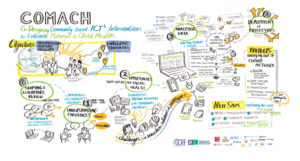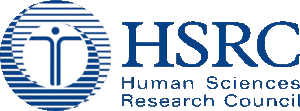
The CoMaCH network and project recognizes that community members are rarely empowered to voice their own priorities and actively participate in the design of interventions intended to benefit them. We argue for a co-design approach, to radically include community members in the design of not only new approaches to digital MCH in the first 1000 days, but the design of research intended to innovate the new approaches. The aim is to establish new relationships and stimulate novel research and innovation. The network is funded by GCRF Digital Innovation for Development in Africa.


![]()






Principle Investigators

Melissa is an Associate Professor in Human-Computer Interaction with a focus on approaches to foster community-based co-design of content and services for bandwidth-constrained contexts, particularly for maternal and child health and community wireless networks. She has experience in South Africa, India, Lesotho, Uganda, Ghana, Mexico, DR Congo, and Rwanda.
Melissa Densmore
University of Cape Town

Nervo is a Lecturer in Human-Computer Interaction. His work combines fieldwork with a design-oriented research approach to further understand people’s everyday practices, different stakeholder’s needs, and how people appropriate technology. Nervo has particular interest on the application of digital health to address maternal and child health challenges in LMIC countries with experience in Ecuador, Peru and India.
Nervo Verdezoto Dias
Cardiff University

Good co-design entails working with and understanding all the stakeholders in the project

Community-Centered MCH
Digital interventions to support maternal and child health (MCH) are widespread. Yet, the impact of these interventions in low-income communities is limited. We believe this is in part due to the top-down nature of digital health development, and propose to take a participatory and community-centred approach to this domain. We will form a multidisciplinary, cross-cultural, and cross-geographical consortium of researchers, technology designers, healthcare professionals and community stakeholders, policy makers, and grassroots citizens’ organizations to explore the potential of information and communication technologies (ICTs) to enhance maternal and child health and well-being during the antenatal and postnatal period in South Africa.
South Africa. We will engage in dissemination, knowledge exchange and impact activities to maximise impact across the identified beneficiaries including South African women, their families, healthcare workers and their communities, academic researchers, industry and policymakers in South Africa, as well as the industry within and beyond South Africa and society in general. We will harness existing social media outlets in the UK and South Africa to increase public awareness of the everyday challenges of MCH in South Africa. Overall, the named research team and collaborators have a strong history of public engagement and outreach so their skills and experience will facilitate impact activities within the network.
OUR STRATEGY
For 2020-2021 our focus is to develop the network, understand current research and practice, and to work with community members to determine their priorities around maternal and child health and well-being, and to develop a community-centered approach to our research.
01
Literature and Practice Scoping Review
We have done a comprehensive review of literature related to our project, drawing on publications and gray literature in computer science, social science, humanities, and health sciences. This review leverages the diversity of our interdisciplinary team, seeking to more deeply understand the role of communities and co-design in the design of digital maternal and child health interventions.
02
Community Engagement: Learning from Current Practice
A key component of this project is to consult with the key stakeholders in digital MCH – with a focus on community members, including fathers, other caregivers, community leaders and community facilitators in addition to mothers. Through (primarily remote) interviews, we discuss their priorities, what has worked and not for previous digital MCH programs they’ve encountered, and their dreams for what might be possible. Results from these interviews will be discussed in a multi-stakeholder workshop including community representatives, network members, and other stakeholders.
03
Community Engagement: Exploring Generative Tools
In this phase, we work with community members to identify priority areas for intervention, as well as to start brainstorming possible directions to address these priorities.